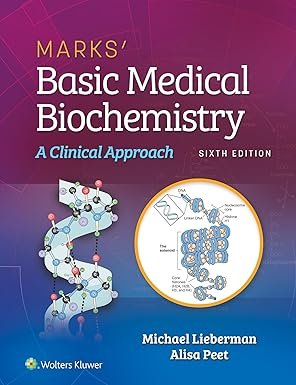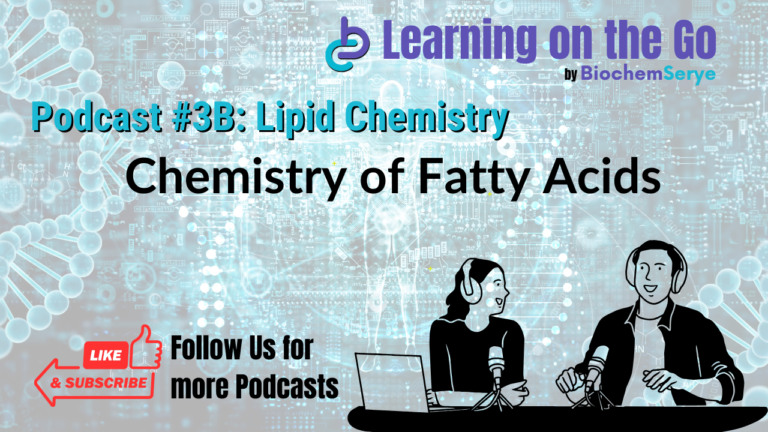Marks’ Basic Medical Biochemistry Review
Clinical focus, case studies, and exam prep make this book essential.
Marks’ Basic Medical Biochemistry: A Clinical Approach, 6th Edition is a medical textbook connecting biochemistry to clinical practice. It uses case studies and numerous review questions to help students understand and apply biochemical concepts to real-world medical scenarios. The book includes a new genetics chapter and updated features such as online animations and additional practice exams. Its high Amazon rating and ranking in relevant book categories suggest strong reader approval. The text aims to improve student comprehension and performance on medical licensing exams.
Check out the Marks’ Basic Medical Biochemistry: A Clinical Approach.

Marks’ Basic Medical Biochemistry: A Clinical Approach, 6th Edition, is a medical textbook connecting biochemistry to clinical practice. It uses case studies and numerous review questions to help students understand and apply biochemical concepts to real-world medical scenarios. The book includes a new genetics chapter and updated features such as online animations and additional practice exams. Its high Amazon rating and ranking in relevant book categories suggest strong reader approval. The text aims to improve student comprehension and performance on medical licensing exams.
The textbook Marks’ Basic Medical Biochemistry: A Clinical Approach emphasizes several clinical applications to help students connect biochemistry to the practice of medicine.
- Clinical relevance of biochemical concepts is emphasized through “The Waiting Room” clinical case studies at the beginning of each chapter, which allows students to apply their knowledge to real-world scenarios.
- The textbook’s structure emphasizes hypothetical patient vignettes to emphasize clinical applications.
- Clinical Notes and Method Notes in the chapter margins help students hone their critical thinking and laboratory skills.
- Clinical Comments throughout the text allow students to transition to practice smoothly.
- The book is designed to help students confidently apply fundamental concepts to medicine, including diagnosing patients and recommending effective treatments.
- The book includes disease links and disease methods to help students understand the clinical implications of biochemistry.
Marks’ Basic Medical Biochemistry Key Themes and Features
- Clinical Approach: The book is built around a “clinical approach,” meaning it doesn’t present biochemistry in a vacuum. Instead, biochemical principles are taught through their relevance to human health and disease. This approach is achieved through:
- Patient Vignettes: Chapters begin with hypothetical patient cases (“The Waiting Room clinical case studies”) to illustrate the clinical significance of biochemical concepts. This lets students immediately see why the information matters in a practical setting. As the text states: “The Waiting Room clinical case studies at the beginning of each chapter emphasize the clinical relevance of biochemical concepts and enable students to practice applying knowledge to real-world clinical scenarios.”
- Clinical and Biomechanical Comments: These throughout the text are designed to help students connect biochemical understanding with practical applications in clinical practice. The text notes that it will “allow students to make a smooth transition to practice.”
- Integration of Disciplines: The textbook explicitly aims to link “biochemistry to physiology and pathophysiology.” This suggests the material is not presented in isolation but as part of a larger understanding of how the body works and how diseases develop.
- Strong Emphasis on Application: The book is application-centered. The focus is on memorizing facts and understanding how biochemical principles can be used to “diagnose patients to recommend effective treatments.”
- New Genetics Chapter: This latest addition indicates that the text seeks to provide a comprehensive understanding of essential topics without relying on supplementary resources and underscores the increasing importance of genetics in modern medicine.
- Comprehensive Review and Practice: The text offers extensive resources for learning and review, including “More than 700-chapter review questions — including over 200 new questions — with answers and explanations prepare students for success on USMLE exams and others.” The text also mentions that the book includes “New End-of-Section Exams- totaling 100 questions” that are online.
- Learning Aids: The text incorporates several aids to enhance understanding:
- Icons, images, and review questions: Designed to make complex concepts easier to understand and retain.
- Chapter summaries and Key Content lists: Help students efficiently identify important takeaways from each chapter.
- Clinical Notes and Method Notes: Provide insights into critical thinking and laboratory application.
Additional Online Resources
The textbook provides a wide range of online features, such as:
- Animations
- Supplemental text, tables, and figures
- Disease links
- Disease methods
- Full patient profiles
Marks’ Basic Medical Biochemistry Strengths
- Clinically Focused: The book’s unique selling point is its heavy emphasis on clinical application. It’s about understanding biochemistry and how that knowledge relates to patient care.
- Comprehensive and Up-to-date: Including a new genetics chapter suggests the authors are keeping pace with developments in the field.
- Abundant Learning Resources: The sheer number of practice questions, online materials, and other learning aids makes this a resource-rich textbook.
- Highly Rated: Positive customer reviews (“4.8 out of 5 stars” from 19 reviews), and the selection as a Doody’s Core Title for 2022, indicate that it is a well-regarded resource.
Marks’ Basic Medical Biochemistry Potential Weaknesses
- The relatively low number of reviews (19) suggests that the text may not be as well-known or widely used as some competitors.
- The book’s low rank on Amazon may imply lower-than-average sales volume
“Marks’ Basic Medical Biochemistry: A Clinical Approach” is a strong contender for medical students and other health professionals seeking a clinically relevant and application-focused understanding of biochemistry. Its emphasis on patient cases, integration of related disciplines, and robust learning tools make it a valuable resource for preparing for clinical practice and licensing exams.
Marks’ Basic Medical Biochemistry Frequently Asked Questions (FAQs)
What is the primary focus of Marks’ Basic Medical Biochemistry, and how does it differ from a traditional biochemistry textbook?
Marks’ Basic Medical Biochemistry emphasizes the clinical applications of biochemistry, linking fundamental biochemical concepts to physiology and pathophysiology. Instead of presenting biochemistry as an isolated subject, it integrates clinical contexts through patient vignettes and case studies, allowing students to understand how biochemistry applies directly to medical practice, including diagnosis and treatment. This differs from traditional texts that may focus more on theoretical aspects.
How does the book use clinical cases to enhance learning?
Marks’ Basic Medical Biochemistry utilizes “Waiting Room” clinical case studies at the beginning of each chapter. These cases present hypothetical patient scenarios, challenging students to apply their knowledge of biochemical concepts to real-world clinical situations. This approach reinforces the relevance of biochemistry and encourages problem-solving skills.
What features does the book offer to help students prepare for exams, such as the USMLE?
Marks’ Basic Medical Biochemistry contains over 700 chapter review questions, including over 200 new questions, with detailed answers and explanations. Additionally, there are new End-of-Section exams online, totaling 100 questions. These resources are designed to help students prepare for exams like the USMLE by testing their understanding and application of biochemical concepts.
Besides review questions, what other learning aids are included in the text?
Marks’ Basic Medical Biochemistry incorporates various learning aids like Clinical Notes and Method Notes in the margins to hone critical thinking and laboratory skills. Chapter Summaries and Key Content lists provide quick overviews of essential takeaways. Clinical Comments and Biochemical Comments bridge the gap between theory and practice, helping students smoothly transition to clinical applications. Finally, supplementary online resources include animations, additional text, tables and figures, disease links, methods, and patient profiles.
How does this edition handle the topic of genetics?
Marks’ Basic Medical Biochemistry 6th edition includes a new genetics chapter, aiming to provide students with a foundational understanding of genetics without needing a separate resource. This integration reflects the increasing importance of genetics in modern medicine.
What is the structure of the chapters, and how do they emphasize clinical context?
The chapters in Marks’ Basic Medical Biochemistry are intuitively organized around hypothetical patient vignettes, highlighting the clinical application of biochemical concepts. This structure ensures that students immediately understand the medical relevance of their learning biochemical principles.
What type of online supplemental material is provided with the textbook?
The online resources of Marks’ Basic Medical Biochemistry include new End-of-Section exams totaling 100 questions, animations, supplemental text, tables and figures, disease links, disease methods, and full patient profiles. These materials provide additional ways to learn the information through video, visual aids, and patient situations.
Who is the target audience for Marks’ Basic Medical Biochemistry?
The target audience of Marks’ Basic Medical Biochemistry is medical biochemistry students, particularly those pursuing a career in medicine, osteopathy, or related health fields. It’s also beneficial for anyone needing a clinical understanding of biochemistry or those prepping for relevant board exams like the USMLE. The application-based focus is designed to help transition them from theoretical studies to practical applications in a clinical setting.
What key features aid students understanding of clinical applications?
“Marks’ Basic Medical Biochemistry: A Clinical Approach, 6th Edition” incorporates several key features to aid student understanding of clinical applications.
● Clinical Approach: The textbook links biochemistry to physiology and pathophysiology using a clinical approach1. This method helps students apply fundamental concepts to medical practice, from diagnosing patients to recommending treatments. Chapters are organized around hypothetical patient vignettes to emphasize clinical applications.
● Case Studies: “The Waiting Room” clinical case studies at the beginning of each chapter emphasize the clinical relevance of biochemical concepts and allow students to practice applying their knowledge to real-world clinical scenarios.
● Clinical Notes and Method Notes: These notes, found in the chapter margins, help students develop critical thinking and laboratory application skills.
● Clinical and Biomechanical Comments: Throughout the text, these comments help students transition to practice.
These features help students connect the biochemical principles with real-world clinical scenarios, enhancing their understanding and application of the material.





